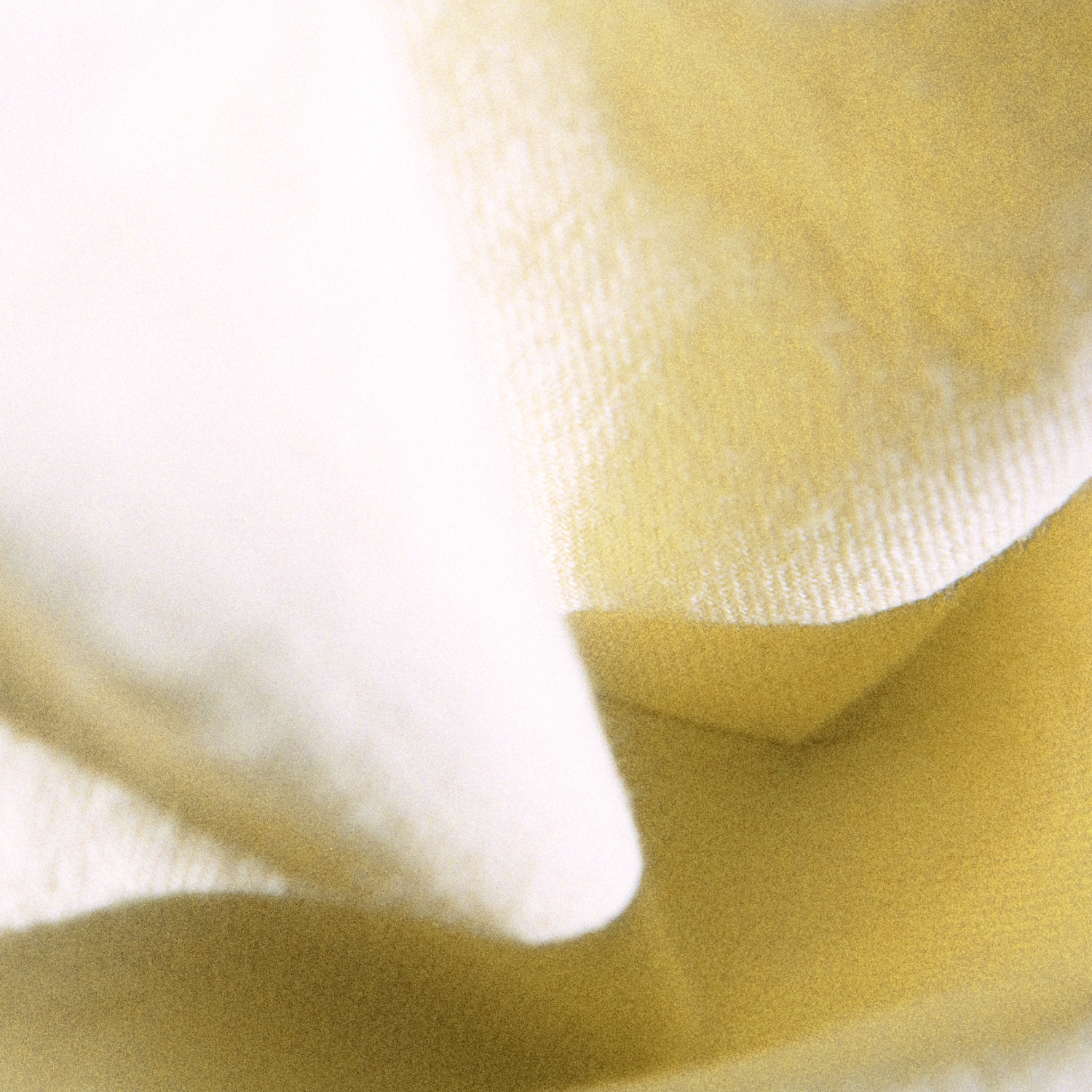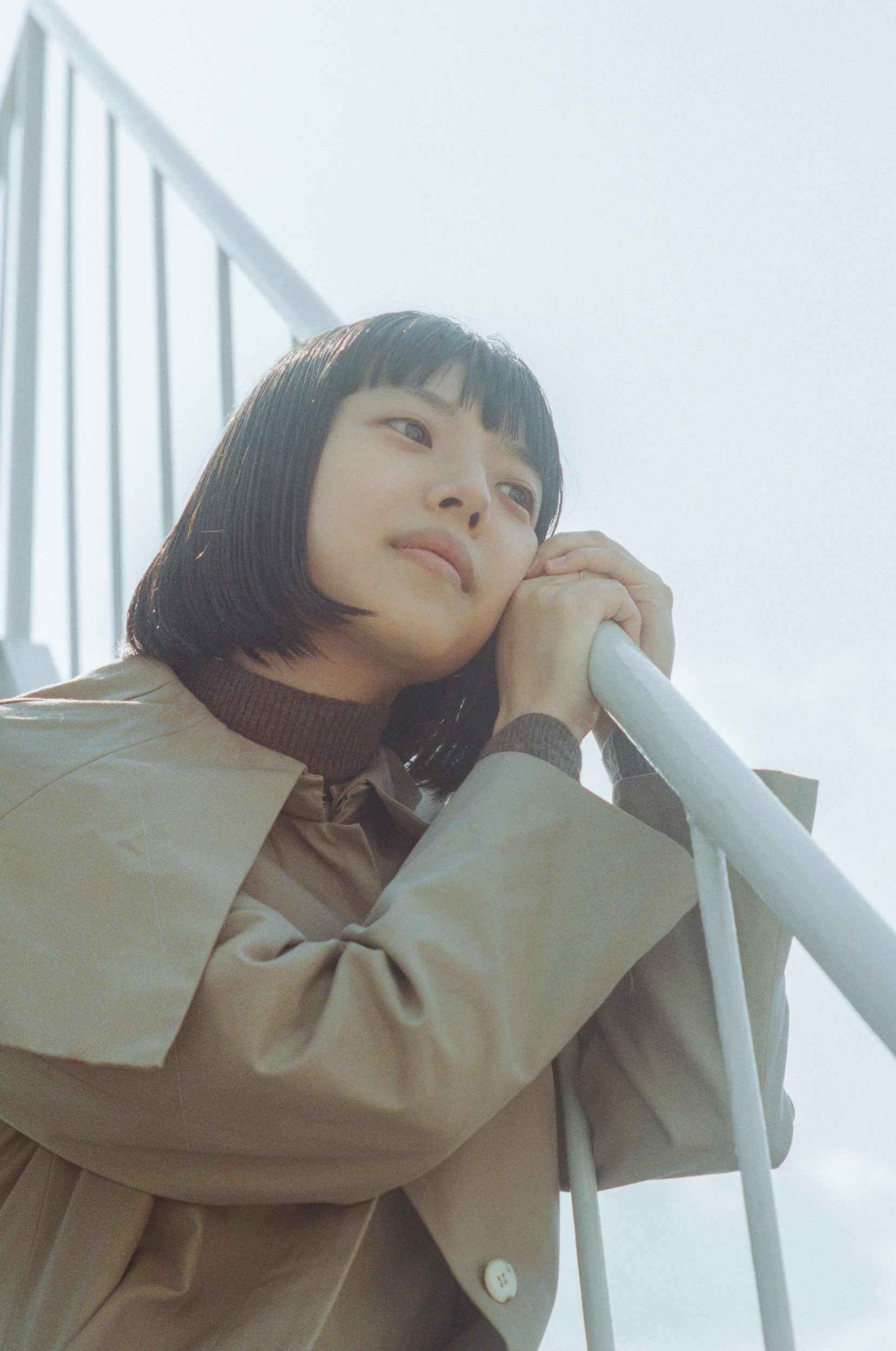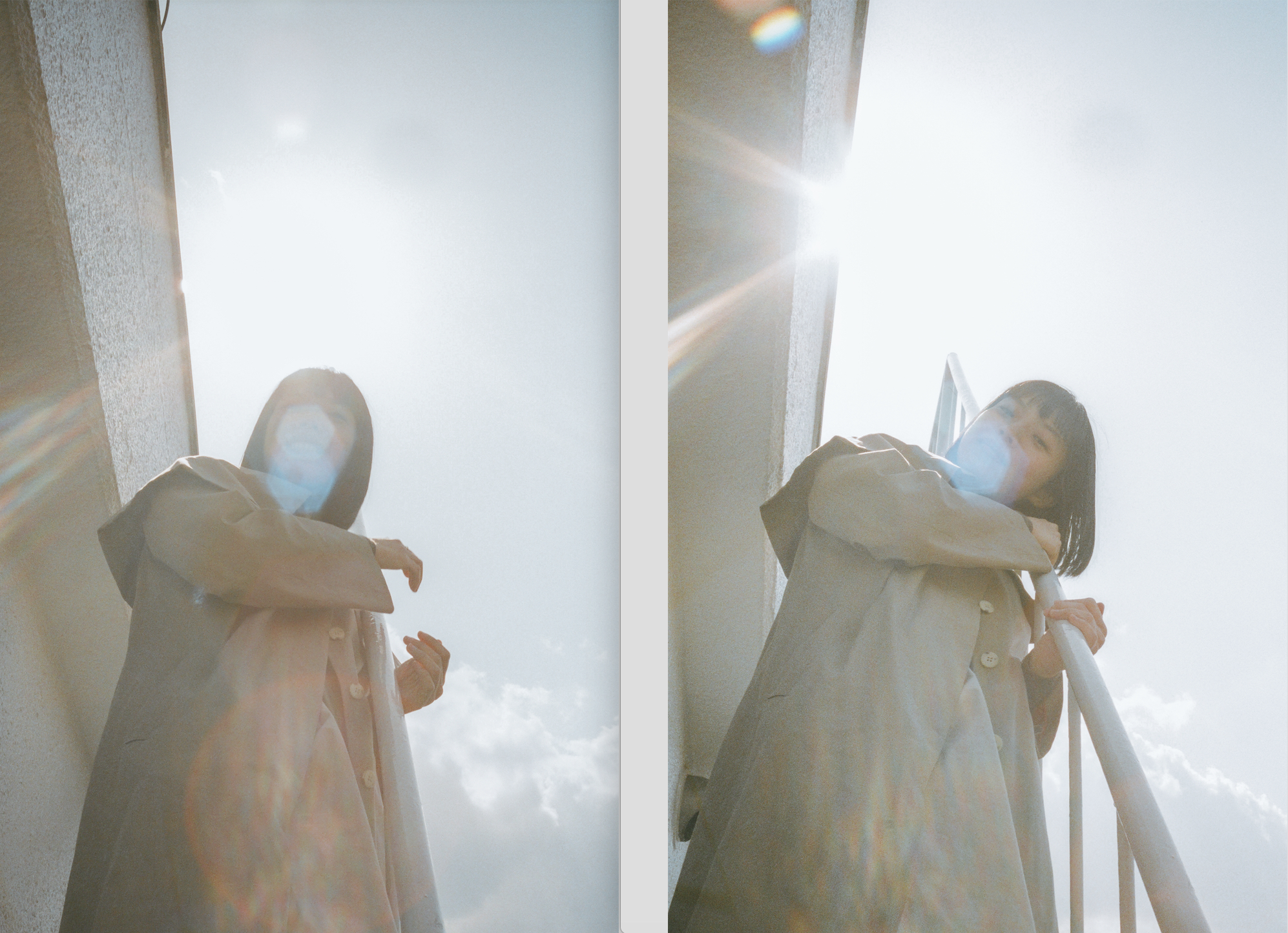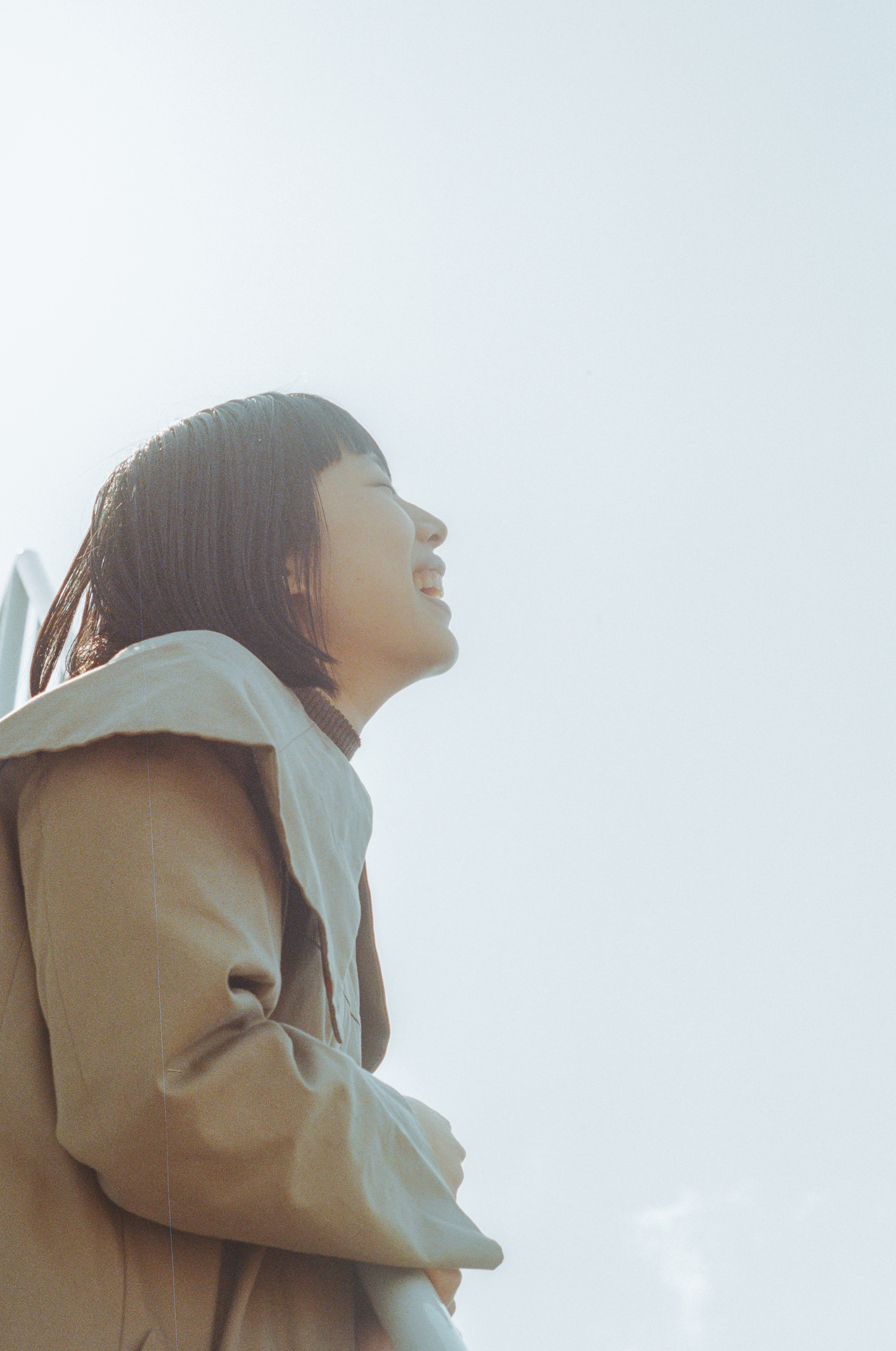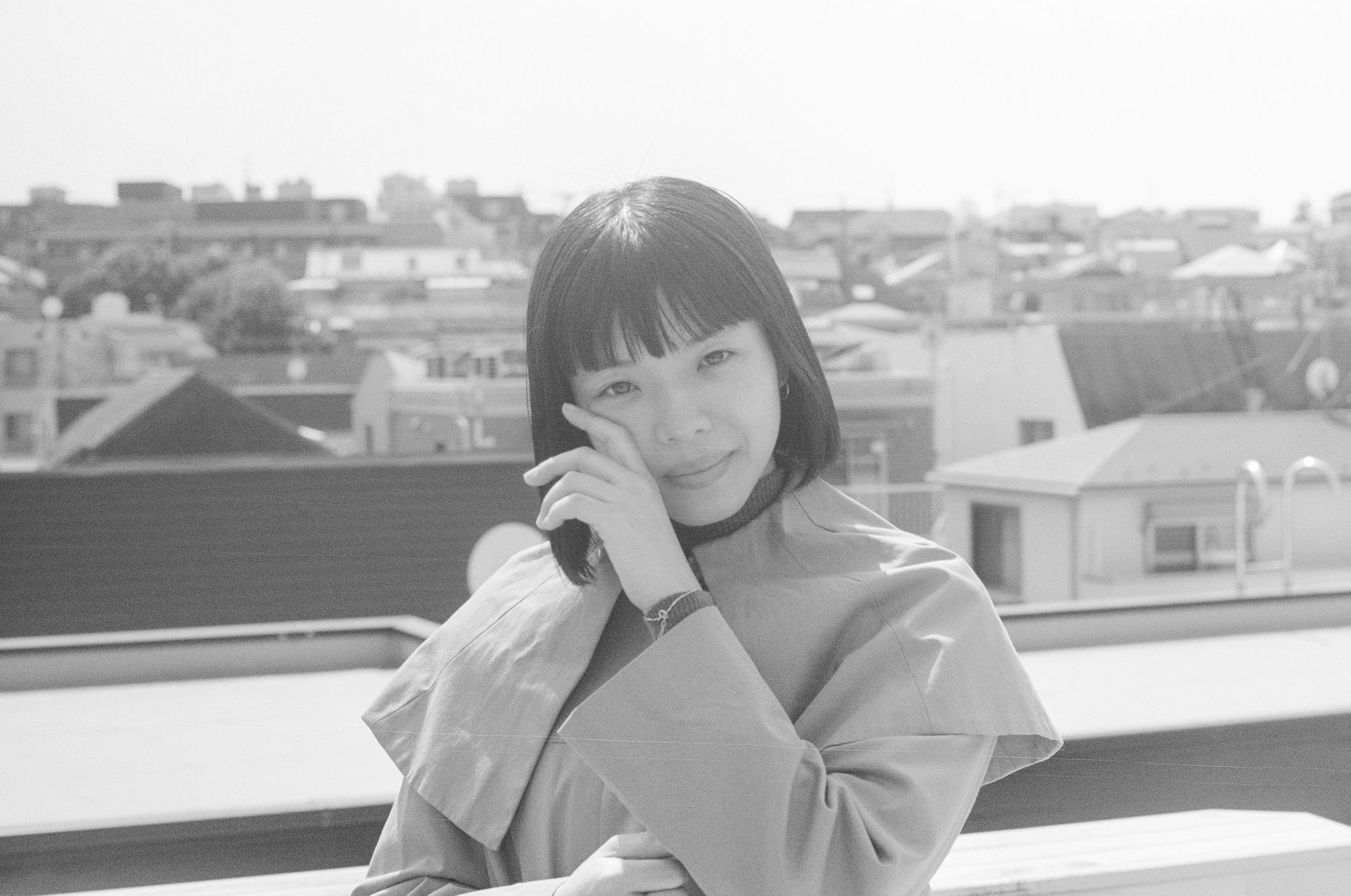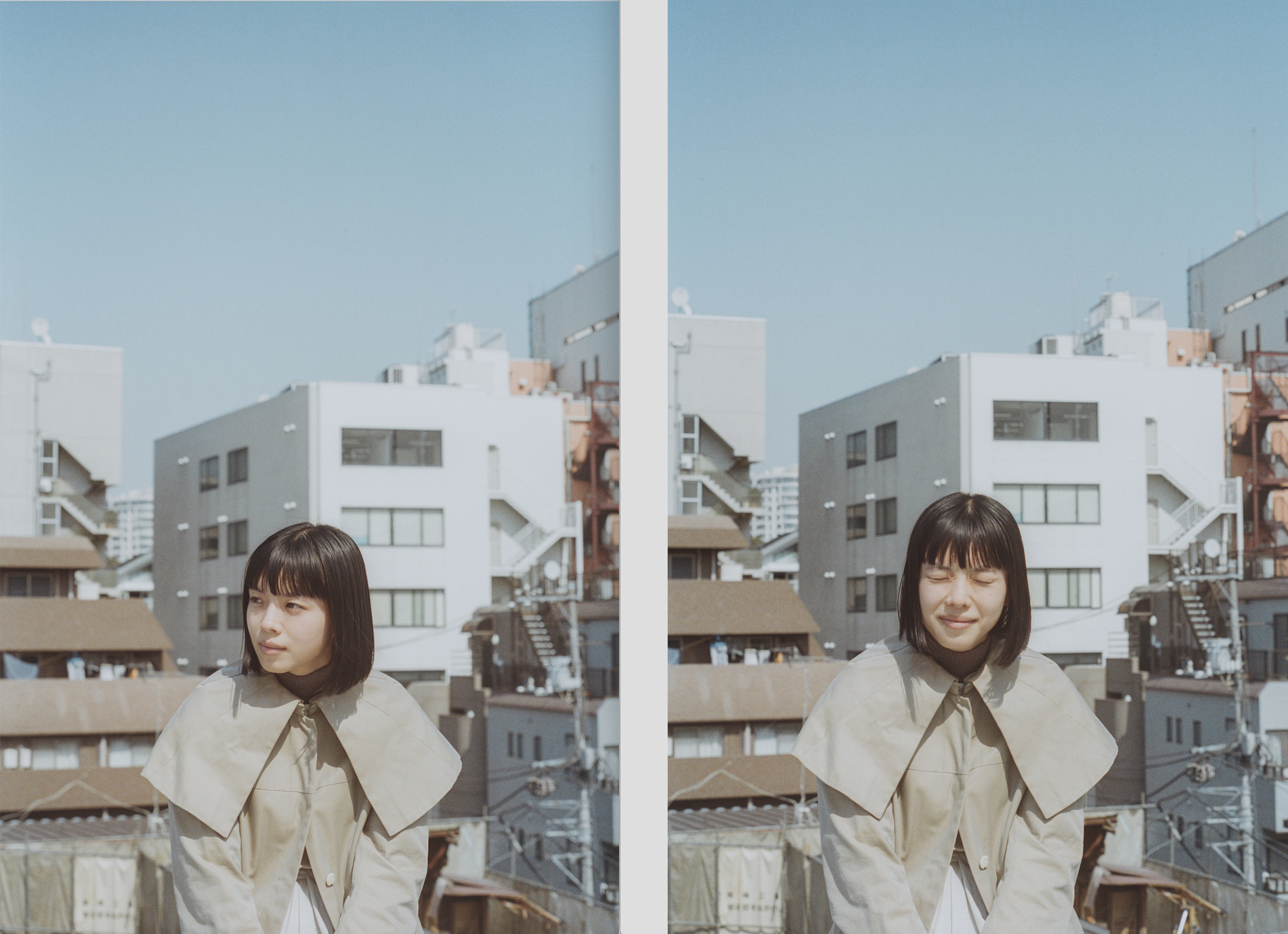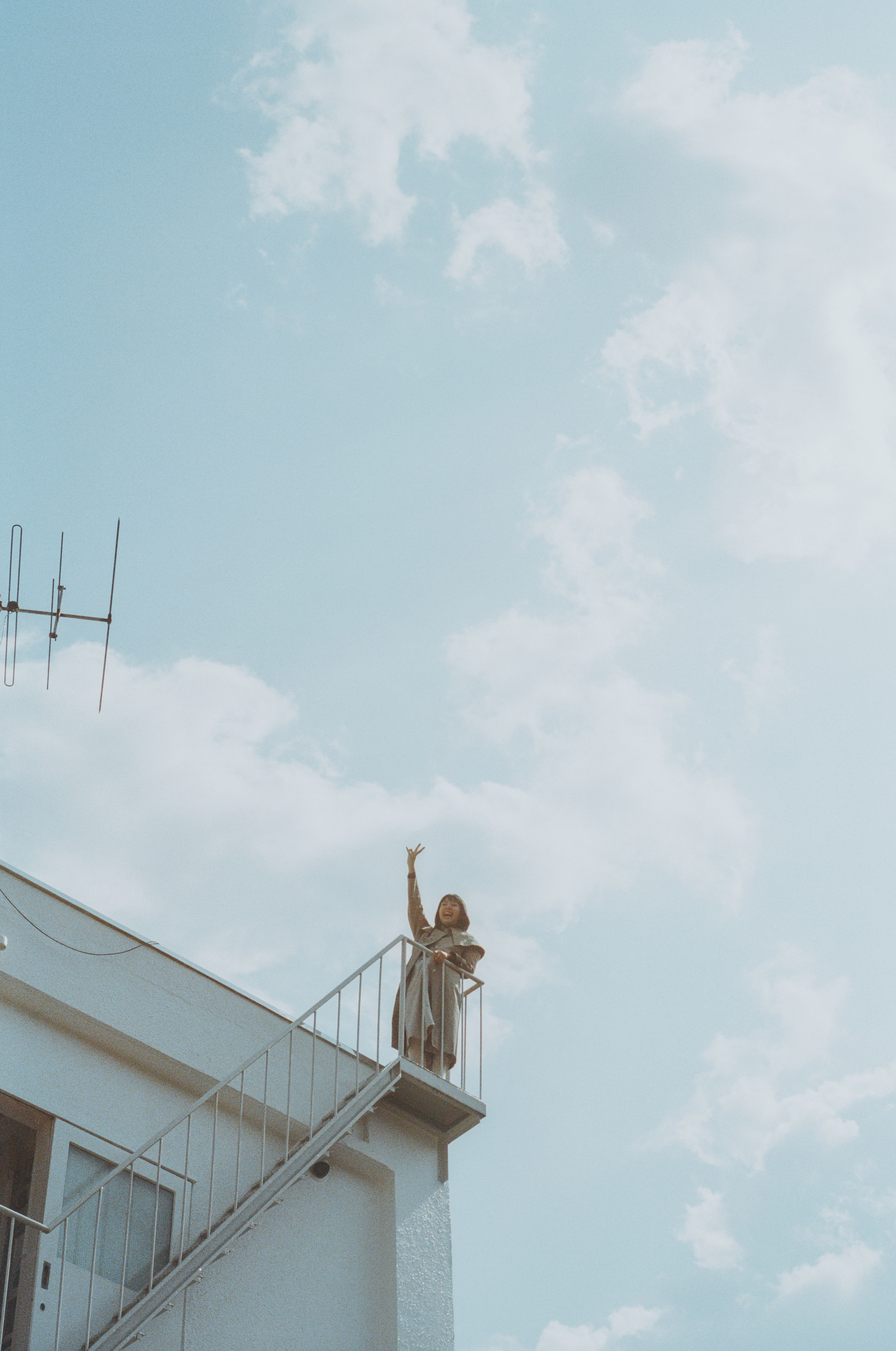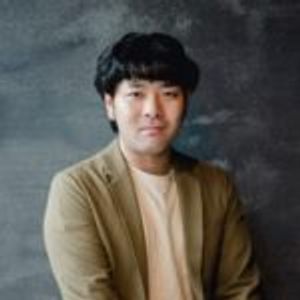After winning the “CD Shop Awards” in 2020 with her previous album Sansan (2019), Ayano Kaneko has released her new album “Yosuga“. “Togaru”, “Koishii Hibi”, “Ai No Mama Wo”, “Hikari No Hou E”; Ayano’s songs have the mysterious power to inspire and encourage everyone. Her empowering influence is particularly directed at herself, which is especially apparent during live performances. However, what about “Yosuga”? While holding the same power as her other songs, the album acts as a document of herself from last year onwards, sometimes even openly showing her depressed self. It expresses a sense of solidarity by frankly exposing what’s inside her heart in a time where everyone is just trying to survive. In this interview, we asked Ayano to share some details about the background of her new album.
A 2020 full of anxiety and her feelings about her live performance in September
――Due to the pandemic, this year was a very anxious one; what were your plans during the year?
Ayano Kaneko: Actually, I was planning to release an album in October last year, and everything was going according to plan until I released Ranman/ Hoshi Uranai To Asa in April, then I had to stop because of the virus. I talked to everyone and realized that it wouldn’t make sense to produce stuff in a hurry, so I decided to relax for the time being.
――In November of last year, you released “Mune No Naka De Shika Nemurenai Neko No You Ni”, which ended up in your album; did you think that was the least you could do at the time?
Ayano: I did. All my plans for live shows vanished, and I felt like I wasn’t doing enough. I was worried about not doing anything at all, so I released the track to bury my anxiety.
――What kind of anxiety?
Ayano: Until then, I was performing live a lot, and I was constantly releasing music, so I was always busy with something. However, when it all disappeared, my body started growing flabbier. I was depressed and doubting myself, even while making new songs, I’d think: “Who would ever listen to this?”. I felt stuck in a loop of negativity.
Last September, I had my first live concert after the pandemic at Osaka Castle Band Shell; while deciding with the team if I should be doing it or not, I unconsciously said that if I couldn’t perform live anymore, I’d quit music. That’s when I realized that I was going through a rough patch.
――I guess that loop of negativity was reaching its limit.
Ayano: Of course, I don’t want to quit; however, it’s because I used to spend time doing stuff and having fun with people that I could enjoy being alone. I felt that the time I was writing songs by myself was very special because everyone could listen to me. So, singing alone at home during the period of self-quarantine felt wrong, like I was doing it only for myself. I’m thankful for this realization, although it was harsh.
――How did you feel when you met your audience at the live show in Osaka after a long time of not being able to perform?
Ayano: I thought I shouldn’t forget how I felt when I could count the number of reservations on the fingers of one hand. That’s why I have to protect the fans who listen to my music now, or rather, I can’t betray them; I have to face them with sincerity. After all, it’s no good without fans; they’re really important. What I built together with the band members and the staff can only be proven and actually felt by facing my fans at live shows.
――How was your songwriting while you were feeling depressed?
Ayano: I couldn’t do it at all. It even stopped completely at some point. So I had no choice but to use songs that I made spontaneously.
――Did you feel like you were squeezing yourself harder than usual?
Ayano: I guess some parts I had to squeeze out, maybe. But I felt relieved I could still write songs; at the end of the day, if I hold a guitar, even with a flabby body, I can do it. When I was 19 or 20, no one was listening to my music in the first place, so I was really just doing it for myself; I guess you could say that my songwriting simply went back to that time.
A “summer vacation-like” recording session
――Before you said that you wanted to relax for this project. How was the recording?
Ayano: Well, I took it easy. The band members also had no more plans like me, right? I wanted to do something, even just to make everyone feel better. Instead of stopping completely, I thought I had to work on something; that way, I wouldn’t feel bad, and we could all help each other. If you include pre-production, I was arranging and recording for 2-3 months straight during the summer. It was basically summer vacation (laughs).
――I really like how you compared recording to summer vacation (laughs).
Ayano: Of course, the main thing was recording, but I also went swimming in the sea, visited some hot springs, bought some fireworks at Don Quijote, and played Jenga. The virus is scary, so I was careful about it, but I was also scared to die inside. It was a tough time if you couldn’t hang out with people, so it was really good for me.
――I heard that you recorded “Shukusai” and “Sansan” in about one or two weeks; was anything different in the recording process for your new album?
Ayano: Some of my past recording sessions were really hard. Some songs weren’t arranged in time to record, and I was also had live shows at the same time; it was really busy. Everyone was exhausted, but we were still making music. We were able to take more time for the new album, though, so everyone was feeling better. So maybe that’s why it felt like summer vacation.
――What parts of the album show that you were able to take more time to make it?
Ayano: I wonder. At the pre-production stage before recording, we talked about how to understand the “personality” of the songs in a deeper way than usual. Perhaps it’s because we produced this album more carefully, but after listening to the whole thing, I noticed that “Ranman” was a bit different from the other songs. We recorded it last January when we didn’t even know what COVID-19 was yet.
――I guess that the part where you sing “You couldn’t possibly understand me” hits differently.
Ayano: The meaning sounds different. When I listened to it again, it sounded more like the kind of song that makes you go, “Woah!”. That’s why it’s great that we all had that conversation.
“It’d be nice to become a ray of sunshine for my listeners”
――Did you have an overall concept for this album?
Ayano: I didn’t have one. I’d hate to make music purposely about the pandemic. It would be pointless to make music that makes sense only in this context, and I want everyone to listen to it next year and even the year after that. That’s why I want it to feel like it was just born in this era.
――At the beginning of “Sakaeta Machi No”, the lyrics are, “This year I definitely won’t go anywhere,” and in “Hirameki Wa Kanata”, you sing, “It’s fine outside / Today I sigh / This house is a castle / I am protected.” Even if it’s not on purpose, the times do have an influence.
Ayano: Even if I say I don’t want to make music about it, I guess it just happens, after all. It just comes out on its own.
――I feel that with “Shukusai” and “Sansan”, you were somehow trying to cheer yourself up and find hope. However, with “Yosuga”, it feels like you’re trying to reassure me when I’m depressed. For example, in these times, it’s kind of hard to listen to people telling you, “Do your best,” right?
Ayano: Exactly! It’s hard to put out songs in these times. Words are powerful, so I can’t just easily tell people to do their best now; even I can’t do my best now. That’s why I gave up on making energetic songs this time; nobody needs them. I feel like that’s the biggest difference between the music I made until Sansan and now.
――So, you were actually trying to cheer people up with your music until then, right?
Ayano: Maybe so. I’m very negative, and sometimes I’m visibly depressed at night. I really hate myself when I don’t feel confident, but on the other hand, I believe in Kotodama, so I force myself to write songs that make me feel good. I used to think that when I’m depressed, it’s just raining, and the sun would rise again at some point.
However, since last year, it’s been dark for a long time, right? Can I really say it’s going to be ok because the sun will rise again? So this time, I decided to take a break from that. I remembered how I honestly felt when I was around 20, and I was writing songs by myself at home, so I tried to emulate that simpleness.
――The one song I felt was most different from your past works is “Tsuioku”. When I first heard it, I had chills go down my spine.
Ayano: Really?! For the past few years, I’ve been very conscious of my songs because I didn’t want to hurt anyone with them. Now I can’t afford to feel like that, and the song that shows it the most might actually be Tsuioku. When I was about 20, I had no idea that I could hurt someone with my music. I feel like I’m returning to that stage.
――But it feels like you’re properly getting closer to your listeners; you’re telling them there’s nothing wrong with themselves, and you’re helping them to be bold and fight back.
Ayano: Absolutely; this might be the time I’ve boldly decided not to impose myself on others the most. Instead of just cheering people up when they’re having a bad time so I can look the other way, I thought it’d be great if I made something that’d help people say, “This situation sucks; it’s actually way too harsh.” It’d be nice to become a ray of sunshine for my listeners.
――Including that, I feel that you’re very honest and that I can believe in anything you sing. Your songs are sad but in a positive way.
Ayano: I’m so happy you said that! I like it; let’s go with that. So, for now, I don’t have to be motivated. I hope it’s good enough to just sink in my sofa.
Everyone’s Yosuga
――What made you choose the title “Yosuga” (in Japanese, something to rely on)?
Ayano: It’s as it means. I’ve always wanted everyone to interpret my music in their own way, and I ended up settling on a word to express that everyone can rely on my music.
――Listening to what you’re saying, I wondered if making this album was something you relied on too, hence “Yosuga”.
Ayano: Maybe that’s the case. When you said that, I got a little melancholic. I guess my feelings are actually different from when I made Ai No Mama Wo. Even sound-wise, it’s not on the energetic side.
――How would you define this album, then?
Ayano: I see it as the album that will always remind me of the troubling times I had during the pandemic when I was 27. It was a year of which I’ll never forget every single time I’ve got someone’s support or even met someone at all. So, when I listen to this album again in the future, I may feel depressed, or I may feel saved by it.
――You could say it’s an album full of turning points for you.
Ayano: I agree. It was also a huge thing that I got infected with the virus this year. I had a fever for about two weeks, and I couldn’t breathe very well; it was super bad. There are some long-term symptoms, right? I was so scared of the possibility of not being able to sing anymore. I like wearing the clothes that I like because I like myself, and I like myself because I make music; three or four years ago, I even had a part-time job. If I suddenly couldn’t sing anymore, I’d start doubting my raison d’etre. I was scared.
However, at that time, bassist (Takuma) Motomura-kun told me that we’re not forced to do the same thing forever and that things might change in our band for different reasons, so we should all start accepting that. I felt a bit relieved after that.
――That sounds harsh. Is your voice back to its powerful self?
Ayano: I can sing just fine now. Now I’m happy when I sing, and it’s fun. Such a relief!
“At the end of the day, I’m always myself, right? There’s nothing wrong with keeping that in mind”
――I feel that your singing has become much more powerful in the last few years. Is that something that you’re consciously aware of?
Ayano: I sometimes see comments like, “Why did she change the way she sings?” but I haven’t done any of that. On the contrary, it changed because I’m human: even our hairstyles and clothes change; it’s the same as wanting to eat something different every day. That’s why you should leave yourself to the emotions of the moment. There were too many times when I overthought something and couldn’t understand what I really wanted anymore. I stopped doing that since stuff happened.
――Since what happened?
Ayano: Since the contract with my first label expired: I felt like I was sent away by myself for the first in my life, and similarly to last year with the pandemic, I worried about my music. Until then, deep down, I’ve always known what I wanted, but that changed because I always just submissively accepted whatever people said to me. I was very subservient at the time, and I couldn’t even laugh properly, so I decided to force myself to say what I think for a while.
By doing so, I’ve definitely made some mistakes, like hurting my parents, friends, and lovers at times. On the other hand, some people took me seriously for that. I learned to properly confront my feelings regarding what I noticed or wanted to say and express my opinion even if I had to force myself. It felt like I peeled my old self off and changed my personality. Thanks to that, I made hug (2016), Togaru (2017), and Shukusai (2018), and this is me now.
――It’s similar to what happened to you recently: you became more self-aware by overcoming the danger of not being able to make music again.
Ayano: It’s a cycle. I’m really bad at being honest, but it’s important. Of course, being selfish is not good, so I do stuff that I don’t really want to do, too. At the end of the day, I’m always myself, right? There’s nothing wrong with keeping that in mind.
Photography Kasumi Osada
Translation Leandro Di Rosa

